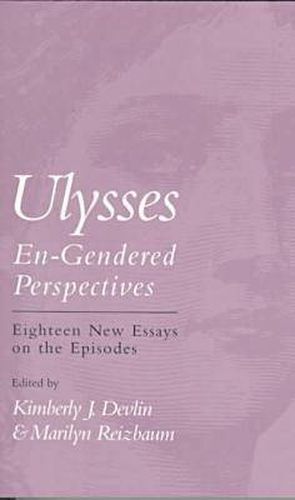Readings Newsletter
Become a Readings Member to make your shopping experience even easier.
Sign in or sign up for free!
You’re not far away from qualifying for FREE standard shipping within Australia
You’ve qualified for FREE standard shipping within Australia
The cart is loading…






A collection of 18 essays, each of which offers commentary on one of the episodes in
Ulysses . Throughout, the common critical concern is with varying articulations of
femininities
and
masculinities
in Joyce’s modernist epic. Each contributor attends to the extensive and various markings of gender in
Ulysses
and examines the ways in which such markings generate and en-gender other meanings. Gender is treated as a form of overwriting, in senses that include both excess and layering. In this collection the differentiations of
masculine
and
feminine , their definitions and elaborations, are approached in multiple ways and in changing contexts. Familial roles, labour assignments, perceptual modes, colonialist categories, sexualities, ethnicities, ways of knowing and learning, scents, tastes and eating habits are but a few of the cultural phenomena the scholars explore. The essays are also responsive to influential trends such as historicism, psychoanalysis and culture critique.
$9.00 standard shipping within Australia
FREE standard shipping within Australia for orders over $100.00
Express & International shipping calculated at checkout
A collection of 18 essays, each of which offers commentary on one of the episodes in
Ulysses . Throughout, the common critical concern is with varying articulations of
femininities
and
masculinities
in Joyce’s modernist epic. Each contributor attends to the extensive and various markings of gender in
Ulysses
and examines the ways in which such markings generate and en-gender other meanings. Gender is treated as a form of overwriting, in senses that include both excess and layering. In this collection the differentiations of
masculine
and
feminine , their definitions and elaborations, are approached in multiple ways and in changing contexts. Familial roles, labour assignments, perceptual modes, colonialist categories, sexualities, ethnicities, ways of knowing and learning, scents, tastes and eating habits are but a few of the cultural phenomena the scholars explore. The essays are also responsive to influential trends such as historicism, psychoanalysis and culture critique.